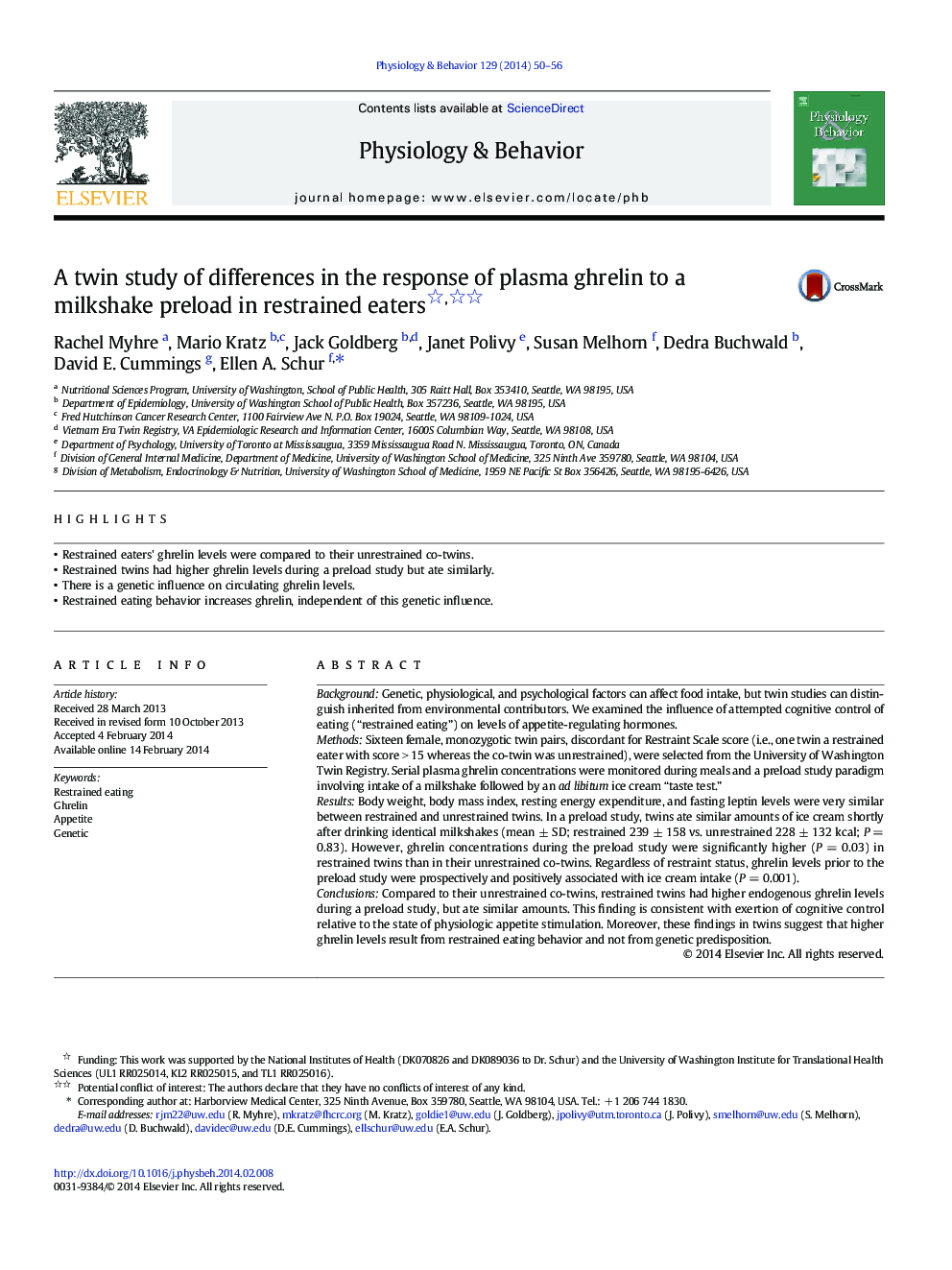| کد مقاله | کد نشریه | سال انتشار | مقاله انگلیسی | نسخه تمام متن |
|---|---|---|---|---|
| 5924252 | 1571188 | 2014 | 7 صفحه PDF | دانلود رایگان |

- Restrained eaters' ghrelin levels were compared to their unrestrained co-twins.
- Restrained twins had higher ghrelin levels during a preload study but ate similarly.
- There is a genetic influence on circulating ghrelin levels.
- Restrained eating behavior increases ghrelin, independent of this genetic influence.
BackgroundGenetic, physiological, and psychological factors can affect food intake, but twin studies can distinguish inherited from environmental contributors. We examined the influence of attempted cognitive control of eating (“restrained eating”) on levels of appetite-regulating hormones.MethodsSixteen female, monozygotic twin pairs, discordant for Restraint Scale score (i.e., one twin a restrained eater with score > 15 whereas the co-twin was unrestrained), were selected from the University of Washington Twin Registry. Serial plasma ghrelin concentrations were monitored during meals and a preload study paradigm involving intake of a milkshake followed by an ad libitum ice cream “taste test.”ResultsBody weight, body mass index, resting energy expenditure, and fasting leptin levels were very similar between restrained and unrestrained twins. In a preload study, twins ate similar amounts of ice cream shortly after drinking identical milkshakes (mean ± SD; restrained 239 ± 158 vs. unrestrained 228 ± 132 kcal; P = 0.83). However, ghrelin concentrations during the preload study were significantly higher (P = 0.03) in restrained twins than in their unrestrained co-twins. Regardless of restraint status, ghrelin levels prior to the preload study were prospectively and positively associated with ice cream intake (P = 0.001).ConclusionsCompared to their unrestrained co-twins, restrained twins had higher endogenous ghrelin levels during a preload study, but ate similar amounts. This finding is consistent with exertion of cognitive control relative to the state of physiologic appetite stimulation. Moreover, these findings in twins suggest that higher ghrelin levels result from restrained eating behavior and not from genetic predisposition.
Journal: Physiology & Behavior - Volume 129, 22 April 2014, Pages 50-56